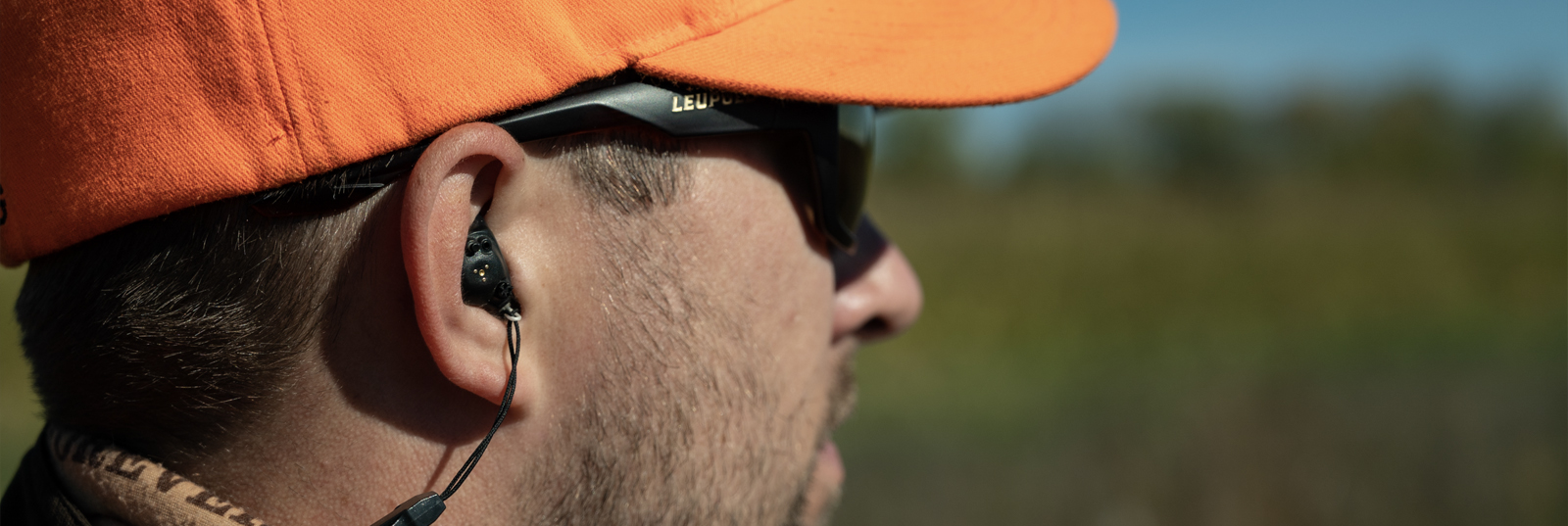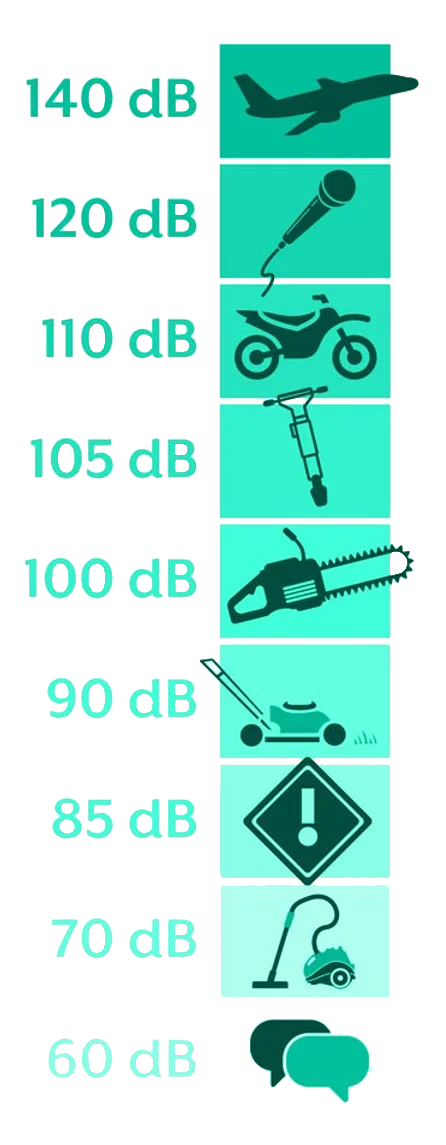
Hearing protection
Hearing loss can occur at any time, at any age. In fact, most people with hearing loss (65 percent) are younger than age 65. This is often because people don’t realize how quickly damage can occur, and that it can come from simple everyday occurrences.
Sounds can be harmful when they are too loud and can damage the sensitive structures in the inner ear, causing noise-induced hearing loss (NIHL). NIHL can be immediate or take a long time to become noticeable. It’s critical that patients are aware of the damaging sounds and learn how to better protect their gift of hearing.
Recognize damaging everyday sounds
According to the Centers for Disease Control and Prevention, exposure to sounds 85 decibels (dB) and above can damage your hearing. The louder the sound, the less exposure time is required for hearing loss to occur.
It’s critical that patients are aware of the damaging sounds and learn how to better protect their gift of hearing.
If you’re uncertain if an environment has damaging sounds, check the decibel level in real-time using the SoundCheck Live app.


Fans at sporting events have become extremely loud in the last few years. At recent games noise levels in stadiums have been ranging between 135 and 142 db.

Occupational hearing loss is one of the most common work-related illnesses in the United States.

70 percent of people exposed to loud noise never or seldom wear hearing protection.

The Centers for Disease Control and Prevention estimates that 44 million U.S. adults have noise-induced hearing loss, which is preventable.
10 tips for healthy hearing
While hearing loss cannot be reversed, people can – and should – protect against it.
- Use hearing protection around loud sounds, such a foam or custom earplugs.
- Turn the volume down.
- Avoid loud or noisy activities/places, when possible.
- Limit your time exposed to loud sounds.
- When listening to loud sounds (like concerts or fitness classes), take breaks from the noise.
- Keep a distance from the loudest sound source (like speakers or fireworks).
- Give your ears time to recover after being exposed to loud noises.
- Do not put anything smaller than your elbow in your ear, like cotton swabs or bobby pins.
- Exercise – this keeps the blood pumping throughout the body and the internal parts of your ears healthy.
- Get your hearing tested regularly, especially if you experience a change in your hearing.
